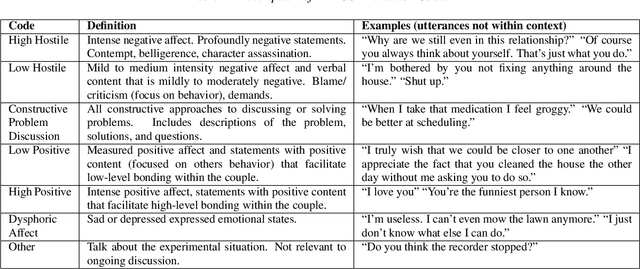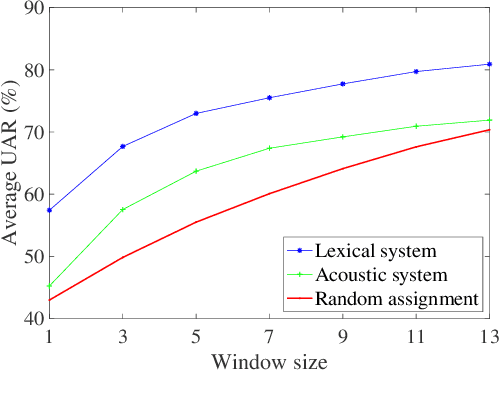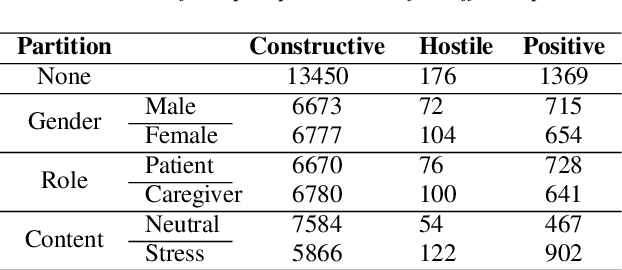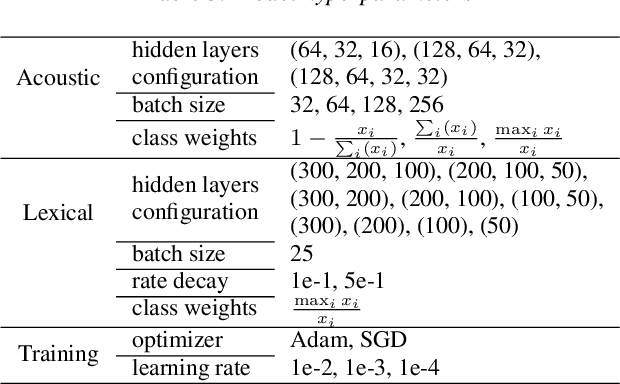Predicting Behavior in Cancer-Afflicted Patient and Spouse Interactions using Speech and Language
Paper and Code
Aug 02, 2019



Cancer impacts the quality of life of those diagnosed as well as their spouse caregivers, in addition to potentially influencing their day-to-day behaviors. There is evidence that effective communication between spouses can improve well-being related to cancer but it is difficult to efficiently evaluate the quality of daily life interactions using manual annotation frameworks. Automated recognition of behaviors based on the interaction cues of speakers can help analyze interactions in such couples and identify behaviors which are beneficial for effective communication. In this paper, we present and detail a dataset of dyadic interactions in 85 real-life cancer-afflicted couples and a set of observational behavior codes pertaining to interpersonal communication attributes. We describe and employ neural network-based systems for classifying these behaviors based on turn-level acoustic and lexical speech patterns. Furthermore, we investigate the effect of controlling for factors such as gender, patient/caregiver role and conversation content on behavior classification. Analysis of our preliminary results indicates the challenges in this task due to the nature of the targeted behaviors and suggests that techniques incorporating contextual processing might be better suited to tackle this problem.
 Add to Chrome
Add to Chrome Add to Firefox
Add to Firefox Add to Edge
Add to Edge